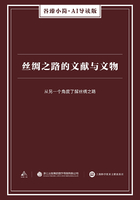Dimly visible, at Metz on the North-Eastern frontier, a certain brave Bouille, last refuge of Royalty in all straits and meditations of flight, has for many months hovered occasionally in our eye; some name or shadow of a brave Bouille: let us now, for a little, look fixedly at him, till he become a substance and person for us. The man himself is worth a glance; his position and procedure there, in these days, will throw light on many things.
For it is with Bouille as with all French Commanding Officers; only in a more emphatic degree. The grand National Federation, we already guess, was but empty sound, or worse: a last loudest universal Hep-hep-hurrah, with full bumpers, in that National Lapithae-feast of Constitution-******; as in loud denial of the palpably existing; as if, with hurrahings, you would shut out notice of the inevitable already knocking at the gates! Which new National bumper, one may say, can but deepen the drunkenness; and so, the louder it swears Brotherhood, will the sooner and the more surely lead to Cannibalism. Ah, under that fraternal shine and clangour, what a deep world of irreconcileable discords lie momentarily assuaged, damped down for one moment! Respectable military Federates have barely got home to their quarters; and the inflammablest, 'dying, burnt up with liquors, and kindness,' has not yet got extinct; the shine is hardly out of men's eyes, and still blazes filling all men's memories,--when your discords burst forth again very considerably darker than ever. Let us look at Bouille, and see how.
Bouille for the present commands in the Garrison of Metz, and far and wide over the East and North; being indeed, by a late act of Government with sanction of National Assembly, appointed one of our Four supreme Generals.
Rochambeau and Mailly, men and Marshals of note in these days, though to us of small moment, are two of his colleagues; tough old babbling Luckner, also of small moment for us, will probably be the third. Marquis de Bouille is a determined Loyalist; not indeed disinclined to moderate reform, but resolute against immoderate. A man long suspect to Patriotism; who has more than once given the august Assembly trouble; who would not, for example, take the National Oath, as he was bound to do, but always put it off on this or the other pretext, till an autograph of Majesty requested him to do it as a favour. There, in this post if not of honour, yet of eminence and danger, he waits, in a silent concentered manner; very dubious of the future. 'Alone,' as he says, or almost alone, of all the old military Notabilities, he has not emigrated; but thinks always, in atrabiliar moments, that there will be nothing for him too but to cross the marches. He might cross, say, to Treves or Coblentz where Exiled Princes will be one day ranking; or say, over into Luxemburg where old Broglie loiters and languishes. Or is there not the great dim Deep of European Diplomacy; where your Calonnes, your Breteuils are beginning to hover, dimly discernible?
With immeasurable confused outlooks and purposes, with no clear purpose but this of still trying to do His Majesty a service, Bouille waits; struggling what he can to keep his district loyal, his troops faithful, his garrisons furnished. He maintains, as yet, with his Cousin Lafayette, some thin diplomatic correspondence, by letter and messenger; chivalrous constitutional professions on the one side, military gravity and brevity on the other; which thin correspondence one can see growing ever the thinner and hollower, towards the verge of entire vacuity. (Bouille, Memoires (London, 1797), i. c. 8.) A quick, choleric, sharply discerning, stubbornly endeavouring man; with suppressed-explosive resolution, with valour, nay headlong audacity: a man who was more in his place, lionlike defending those Windward Isles, or, as with military tiger-spring, clutching Nevis and Montserrat from the English,--than here in this suppressed condition, muzzled and fettered by diplomatic packthreads; looking out for a civil war, which may never arrive. Few years ago Bouille was to have led a French East-Indian Expedition, and reconquered or conquered Pondicherri and the Kingdoms of the Sun: but the whole world is suddenly changed, and he with it; Destiny willed it not in that way but in this.














